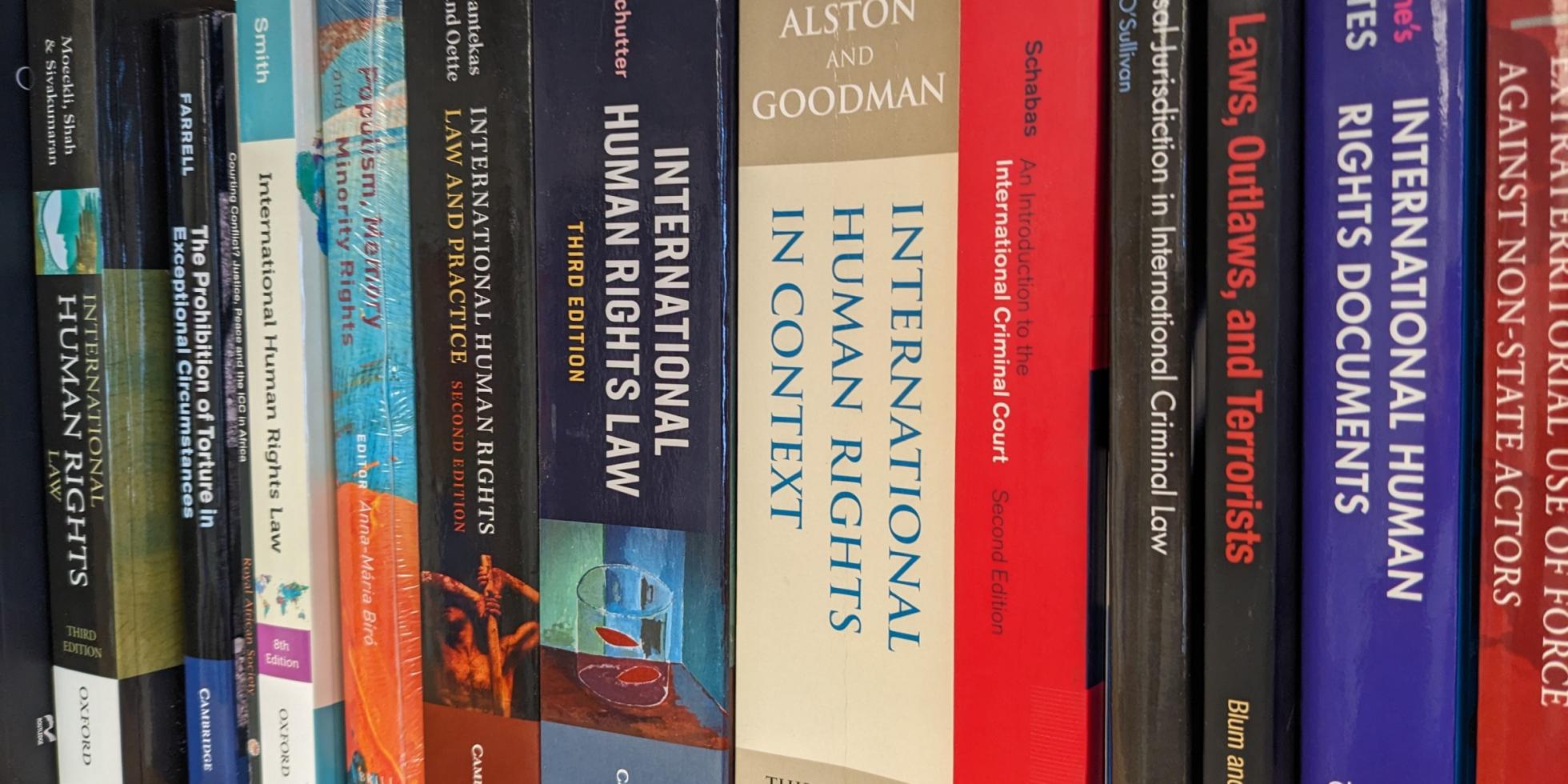The virtual human rights library brings together resources from multiple libraries and information services, both internal and external, to create an online hub dedicated to the study of human rights. This curation is unique in its interdisciplinary concerns and focuses on writings and research from social sciences, humanities, and law.
The virtual library is continually updated with the latest academic research in issue areas, as well as with relevant films, recorded conversations, and other forms of media.
Searchable Database
Click into the dropdowns to select the disciplines, keywords, and media type for your search, and then hit "Apply."
Sarah Abreyava Stein Saharan Jews and the Fate of French Algeria (University of Chicago Press, 2014)
The history of Algerian Jews has thus far been viewed from the perspective of communities on the northern coast, who became, to some extent, beneficiaries of colonialism. But to the south, in the Sahara, Jews faced a harsher colonial treatment...
Setsu Shigematsu Scream from the Shadows: The Women's Liberation Movement in Japan (University of Minnesota Press, 2012)
More than forty years ago a women’s liberation movement called ūman ribu was born in Japan amid conditions of radicalism, violence, and imperialist aggression. Setsu Shigematsu’s book is the first to present a sustained history of ūman ribu’s formation...
David Fedman Seeds of Control: Japan's Empire of Forestry in Colonial Korea (University of Washington Press, 2020)
Japanese colonial rule in Korea (1905–1945) ushered in natural resource management programs that profoundly altered access to and ownership of the peninsula’s extensive mountains and forests. Under the banner of “forest love,” the colonial government set out to restructure the...
Sandrine Sanos The Aesthetics of Hate: Far-Right Intellectuals, Antisemitism, and Gender in 1930s France (Stanford University Press, 2012)
The Aesthetics of Hate examines the writings of a motley collection of interwar far-right intellectuals, showing that they defined Frenchness in racial, gendered, and sexual terms. A broad, ambitious cultural and intellectual history, the book offers a provocative reinterpretation of...
C. L. R. James The Black Jacobins: Toussaint L'Ouverture and the San Domingo Revolution, 2nd Edition (Vintage Books, 1989)
Originally published in 1938, this powerful, intensely dramatic book is the definitive account of the Haitian Revolution of 1794-1803, a revolution that began in the wake of the Bastille but became the model for the Third World liberation movements from...
Ethan B. Katz The Burdens of Brotherhood: Jews and Muslims from North Africa to France (Harvard University Press, 2015)
Headlines from France suggest that Muslims have renewed an age-old struggle against Jews and that the two groups are once more inevitably at odds. But the past tells a different story. The Burdens of Brotherhood is a sweeping history of Jews and...
Nick Couldry, Ulises Mejias The Costs of Connection: How Data Is Colonizing Human Life and Appropriating It for Capitalism (Stanford: Stanford University Press, 2019)
Just about any social need is now met with an opportunity to "connect" through digital means. But this convenience is not free—it is purchased with vast amounts of personal data transferred through shadowy backchannels to corporations using it to generate...
Frantz Fanon The Psychiatric Writings from Alienation and Freedom (Bloomsbury Publishing, 2020)
Frantz Fanon's psychiatric career was crucial to his thinking as an anti-colonialist writer and activist. Much of his iconic work was shaped by his experiences working in hospitals in France, Algeria and Tunisia. The writing collected here was written from...
Fatimah Tobing Rony The Third Eye: Race, Cinema, and Ethnographic Spectacle (Durham: Duke University Press, 1996)
Charting the intersection of technology and ideology, cultural production and social science, Fatimah Tobing Rony explores early-twentieth-century representations of non-Western indigenous peoples in films ranging from the documentary to the spectacular to the scientific. Turning the gaze of the ethnographic...
Aileen Moreton-Robinson The White Possessive: Property, Power, and Indigenous Sovereignty (University of Minnesota Press, 2015)
The White Possessive explores the links between race, sovereignty, and possession through themes of property: owning property, being property, and becoming propertyless. Focusing on the Australian Aboriginal context, Aileen Moreton-Robinson questions current race theory in the developed world and its...
Please Note:
While the Virtual Library is now live for use, we are still working to update its contents and improve its functionality.
It is usable by all visitors, but the hyperlinks to materials listed are for UChicago community members with a CNet ID and password.
Please direct feedback and suggestions to Kathleen Cavanaugh.
For technical assistance, email pozenhumanrights @ uchicago.edu.

